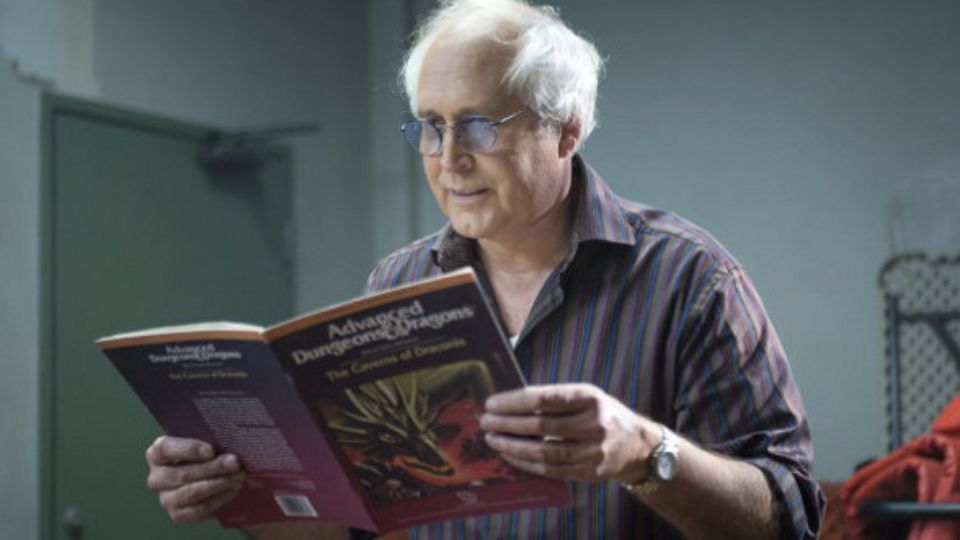 Missing a gaming session: we’ve all done it at some point. Something came up, plans got shifted, work ran long, blah blah blah. The reasons are as varied as the day is long. However, we all know that there are only three morally acceptable reasons for missing a gaming session: an illness that is both highly contagious and debilitating (if the illness has only one of those traits, it isn’t acceptable), a death in the player’s family (or of the player him or herself), or the attendance of a CON. Therefore, if a player misses a session for any reason other than the three listed above, they need to be punished. We at High Level Games have compiled the most common excuses given for players’ absences and have provided you with the suitable response. 1. The excuse: work/school (e.g. ran late/was rescheduled/business trip) The punishment: the player is forced to spend the entirety of the following session with his or her character pursuing a skill or trade- the duller, the better (e.g. professional whittler, understudy of an opera singer). Make them role-play as much as possible and roll frequently throughout to determine their success. Make sure to shame them for prioritizing fiscal or professional responsibility over your fantasy fun. 2. The excuse: not feeling well (i.e. a sickness not meeting the above criteria) The punishment: their character is afflicted with a magical ailment with the same symptoms they were experiencing and assign stat penalties. For added joy, make these permanent for their character. We’ll see who misses again because of the sniffles when every time it happens, their character gets a permanent -1 to all stats (and increasingly worse sniffles). 3. The excuse: attending a different social function The punishment: the player loses all levels in their current character class and gains that many levels in bard. If they’re such a social butterfly, then their character will become one too. Apply this punishment even in game systems which don’t include the bard class. How rude of them to have a social life outside those sitting at this table! 4. The excuse: spending time with a significant other The punishment: their character is spayed or neutered if they roll a natural 1 during their first combat next session. If they avoid that, they must attend a mandatory abstinence class given by the clerics of Pelor, God of Light (or other deity according to your game). If they survive THAT, their character will then submit to an STD health checkup by Grognar the handsy troll. If they endure that, then you can let them off the hook. I mean, love is a beautiful thing. 5. The excuse: car trouble/lack of transportation The punishment: kill their character’s horse. If they don’t have a horse, give them a horse and then kill it. That’ll teach them to have things out of their control malfunction. 6. The excuse: life’s just super busy right now The punishment: their character loses all levels in their current character class and gains that many levels in wizard. Then, ban them from using a computer to look up spell descriptions and assign them spells from all applicable supplemental rulebooks. And they thought their life was busy before… 7. The excuse: too tired/overslept The punishment: their character will be the target of any subsequent sleep spells cast during the course of the campaign. Also, on an unrelated note, all enemies, down to the humblest bandit or kobold, gain the power to cast the sleep spell as a racial power once per day. 8. The excuse: took Exlax instead of Immodium The punishment: don’t worry about it. So there you have it, the rational responses to your common excuses. The next time someone skips out on a session, don’t get mad, get even. *Editor’s Note, it pains me to even add this, but I am. The sarcasm is strong with this article. Please consider that before you explode. - Jake is the Texas correspondent for High Level Games. The last time a player missed a session in his campaign, the offender returned to find his character chained and ball-gagged to the side of the ship.  With a title like that, I have to spill the beans. I’m only 22 years old, which apparently make me pretty young in the gaming community. This fact makes me proud to be a part of the hobby’s growth and development but makes me the butt-end of many jokes. Considering my upbringing, it just kind of rolls off, my family was awful like that. Two out of my three groups are with “older” gamers. To most people my age, it seems rather weird that I game with people ten or twenty years older than me. The way I see it; people are people and if you can look past that, there’s a lot to gain, learn and enjoy. More than most would think, there’s plenty of good stuff you can get from gamers outside of your age bracket. 1). Experienced Most obvious of all, gamers who have been in the hobby for a while have a good grip on what’s going on. The internet is spattered with GM advice, player advice, homebrew rules/settings etc. etc. What’s great about being involved with a game group of folks older than you: they did all that before the internet existed. This means that everything they’re hashing out has been honed by many nights spent in a terrible setting run in a terrible way that ultimately lead to a polished mindset of game design and development. Moreover, things tend to be less stereotypical with experienced gamers. People who have been around the block more than a few times tend to be bored with the slaughtering of kobolds for their gold and tend to think outside the box. For me, it often delivers a more intriguing, deep and unique story that makes you think and question the world. Perhaps stating it that way makes it seem a little more dramatic than it actually is, but the gaming experience does tend to be more rich. Experience doesn’t only shine in a well thought out world, though. Techniques for foreshadowing, table management, characterization, plot building and every other aspect of the game simply tends to be better. If the other players are of the same ilk, I find that things also can run very smoothly. It’s really taught me how to be a good contributor on both sides of the screen. 2). Rigid schedules My Saturday group struggles to get together regularly as opposed to my Tuesday one. This could be for a multitude of reasons, but the one that’s most obvious to me is the difference in personal lives. The Tuesday crew is my elderly group (not really, oh, are they going to love reading that!) and tends to meet far more regularly. That group also has a lot more people, which likely has a huge amount of relevance. However, upon pondering the subject, it makes sense. People with families and full time jobs tend to have a lot more predictable lives in regards to scheduling. Perhaps it’s the fact that it’s easier to set aside one day for something a week when every other day is spoken for already by a family or job. Maybe being younger and having a lot more free time makes people prone to doing other stuff or getting distracted. Who knows? The point stands. On the other hand, those with kids can be absent for a long time due to extracurricular activities. I would assume that’s why my Tuesday group has seven players with a minimum of four to play a game. But wait… I have a predictable schedule and a full time career. What does that make me? 3). No longer embarrassed Role-playing games are a bunch of people sitting around a table playing pretend. It sounds foolish in that light, but honestly, what would you call it? When I describe it to people outside of the hobby I call it “collective storytelling,” but that’s just because I don’t want to sound strange. Hundreds of times over, I’ve brought somebody into this hobby and they can’t get into the game because they’re embarrassed about playing pretend. To be fair, it does take some time getting used to, but it can get a little frustrating, too. Playing with the Grognards is amazing because nobody cares. Everybody just says/does whatever they think would be relevant for the character, without a care in the world. It’s such a liberating feeling to be sitting around a table with that kind of atmosphere. When everybody has that level of investment in what they’re doing, it helps make the game immersive and rich with imagery. Even better, when things are less serious, the comedic element is all that more potent. 4). Amazing stories Our hobby is almost infamous for creating memorable moments. Even if you’re new to gaming, there’s bound to be some sort of memorable story for you to talk about in the future. As with most things, more time invested means more conversation points. Playing with Grognards really accentuates that fact. My favorite role-playing story actually comes from my Tuesday group in the Eberron campaign setting. It pretty much hashed out the way that the classic Gazeebo story does, but instead we faced a stone elephant statue. The main difference was, instead of actually dying, they had to fight it and be shamed into running away. Don’t you love it when inanimate objects turn into monsters? But anyhow, before the game, sometimes the group gets wrapped into a reminiscing session about epic moments in previous games. It’s a total blast to listen to, kind of like listening to a war veteran talk about their experiences. Okay, that comparison might be a bit of a stretch, but the sense of wonder and amazement can be similar. On the short hand, for you tl;dr type people; go find yourself a group outside of your age bracket. It’ll probably be the best thing you ever do and help improve your understanding of role playing. Sean is a BMW technician by day, the Heavy Metal GM by night, and loves everything about 13th Age. If the game interests you and you want to learn more, check out his 13th Age blog here. |
All blog materials created and developed by the staff here at High Level Games Archives
April 2023
Categories
All
|
Proudly powered by Weebly

 RSS Feed
RSS Feed